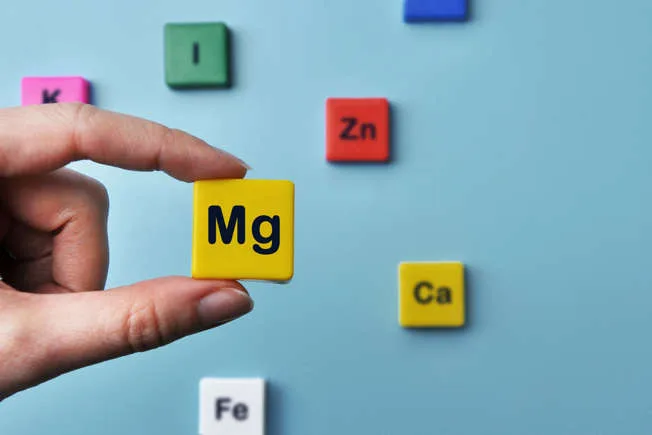Why Magnesium Is More Crucial for Your Health Than You Think!

Magnesium plays a critical role in many essential functions of the body, and its importance can’t be overstated. From nerve transmission to muscle recovery and hormone regulation, magnesium is involved in over 600 bodily reactions. Here’s a deeper look at why magnesium is so vital:
What is Magnesium?
It is an essential macronutrient that is found throughout your body, with around 60% of it stored in your bones. It is key for many physiological processes and is necessary for the proper function of cells.

Why We Need Magnesium
Every single cell in your body contains , and it’s essential for these cells to function properly. It acts as a “helper” molecule (called a co-factor) in many biochemical reactions.
Healthy Nerves
It is crucial for nerve transmission. Low levels can lead to increased stress, as magnesium helps regulate the body’s stress response.

Muscle Recovery
It aids muscle function by helping muscles relax after use. It also assists in the removal of lactate, a byproduct of exercise, and helps move blood sugar into the muscles, promoting better recovery after physical activity.
Hormone Health
It helps balance hormone levels, including cortisol, the stress hormone. For women, it role in hormone regulation is particularly important, especially considering the fluctuation of it levels throughout the menstrual cycle. Deficiency can exacerbate symptoms of PMS.

Energy Creation
It helps convert food into energy, supporting overall vitality and stamina.
Protein Production and Gene Maintenance
This mineral is essential for the synthesis of proteins and the repair and maintenance of DNA and RNA, playing a role in cell growth and repair.
Chronic Inflammation
It deficiency has been linked to increased inflammation in the body, which is a contributing factor to a wide range of chronic diseases.

What Reduces Magnesium Levels?
Several factors can deplete it from the body, including:
- Sugar and caffeine: These can reduce it levels.
- Fluoride and chlorine: These bind to magnesium, making it less available in our water.
- Stress: Stress can cause the body to lose magnesium through urine, further contributing to anxiety and stress.
- Alcohol: Chronic alcohol use can significantly lower magnesium levels.
Given how many bodily functions depend on , it’s crucial to ensure you’re getting enough of this mineral in your diet. Foods rich in it include leafy greens, nuts, seeds, whole grains, and legumes.
If you’re concerned about deficiency or experiencing symptoms like muscle cramps, fatigue, or anxiety, it might be worth looking into how you can increase your intake.






